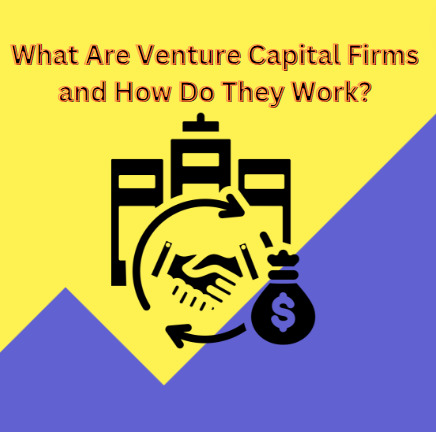#venture investment company
Explore tagged Tumblr posts
Text
#givepartners#equity investment#syndicate investing#equity investment syndicating platform#venture investment company#equity investment strategies#moonshot investment
0 notes
Text
Grow your equity investments with our syndicate investing platform & venture investment company. Learn the best equity investment strategies and maximize returns.
#givepartners#equity investment#syndicate investing#equity investment syndicating platform#venture investment company#equity investment strategies#moonshot investment
0 notes
Text




>mfw i realize the investors of the royal trading company i hired myself out to as land-marine security have bet their entire livelihoods and dreams for the future on a doomed project and i just could not care less about any of them.
Pocahontas (1995)
#'''those boys'''' :3#king bitch john smith#john smith#disney john smith#disney's pocahontas#disneyedit#pocahontasedit#pocahontas meta#pocahontas#disneygif#pocahontasgif#queso*gif#queso*edit#john 'cunt montague' smith saying some more out of pocket shit about his fellow englishmen#this man. fucking Hates the people he's here with#there's no way he doesn't do more than tolerate them all. he's Constantly pulling anti-social shit like this#even how he indulges thomas reads very much as 'tolerance for the kid' to me#from the settlers' perspective the revelation that Virginia has no gold is Life Ruining News#and john's response is to Laugh. the virginia company is falling apart john. and you're LAUGHING#this is a good time to remember that john's not actually there as a ''settler'' himself#HE'S not personally invested in the company. he's there to protect the investors' interests. for PAY.#he's a hired gun: his job is to make sure nobody dies too badly on this venture#and he's good at his job! he's a damn professional. he doesn't need to LIKE them to give a shit about them all surviving.#hell part of his job is working with and maintaining order among the company for RATCLIFFE#and they HATED each other on SIGHT.#pocahontas (1995)
51 notes
·
View notes
Text
Top investors in space in India
Why Venture Capitalists Are Betting Big on India’s Space Sector

A Thriving Ecosystem of Space Startups: India’s space ecosystem is no longer limited to government-run entities like the Indian Space Research Organisation (ISRO). Today, a surge of innovative space startups are taking the stage, offering cutting-edge solutions in satellite technology, launch services, space data analytics, and more. Companies like Skyroot Aerospace, Agnikul Cosmos, and Pixxel lead the charge, each carving out a unique niche. These startups are pushing the boundaries of what’s possible, driving investor interest with the potential for high returns in a relatively untapped market.
Strong Government Support and Policy Reforms: One of the key reasons behind the surge in space venture capital in India is the proactive stance taken by the Indian government. Recent policy reforms have opened the doors for private players to participate in space activities, previously dominated by ISRO. Establishing IN-SPACe (Indian National Space Promotion and Authorization Center) is a significant step, providing a regulatory framework that encourages private sector involvement. Such government support has given investors in space in India the confidence to back ambitious projects, knowing there’s a clear path for private ventures.
Cost-Effective Innovation as a Competitive Edge: India’s reputation for cost-effective innovation is another major attraction for investors. Launching satellites at a fraction of the cost compared to global competitors has positioned India as a hub for affordable space technology. This competitive edge not only allows Indian space startups to thrive domestically but also makes them attractive on the international stage. Investors are keen to support companies that can deliver world-class technology with lower capital outlays, reducing investment risks while promising impressive returns.
Global Interest in Indian Talent and Expertise: India’s space sector is not just about affordability; it’s about world-class talent. The country boasts a deep pool of highly skilled engineers, scientists, and entrepreneurs with expertise in aerospace and technology. This talent pool has been instrumental in driving innovation and attracting global attention. International investors are increasingly looking to partner with Indian space startups, recognizing the country’s unique blend of technical prowess and entrepreneurial spirit.
A Growing Market for Space-Based Services: The market for space-based services, including satellite communications, Earth observation, and data analytics, is expanding rapidly. In India, this growth is driven by rising demand from industries such as agriculture, telecommunications, logistics, and defense. With space technology playing a crucial role in optimizing these sectors, investors see an opportunity to capitalize on the potential for domestic and international applications. Space-based services represent a lucrative market, attracting space venture capital in India to back startups that can cater to these needs.
Strategic Partnerships and Collaborations: Indian space startups are not working in isolation; they are forming strategic partnerships with global companies and space agencies. Collaborations with NASA, ESA (European Space Agency), and private companies have opened up new opportunities for technology sharing, funding, and market access. These partnerships have also strengthened investor confidence, as they reduce risks and validate the technology being developed by Indian companies. For investors in space in India, such collaborations signal a promising future, driving more venture capital into the sector.
A New Era of Commercial Space Exploration: The idea of commercial space exploration, once confined to science fiction, is now becoming a reality. From reusable rockets to satellite constellations, Indian space startups are exploring new frontiers that were once considered out of reach. This new era of commercial space exploration has piqued the interest of venture capitalists who see the potential for profitable exits through IPOs, acquisitions, and global partnerships. With private space missions no longer just a dream, space venture capital in India is ready to fuel the next big leap.
Encouraging Signs from Successful Fundraising Rounds: The confidence in India’s space sector is evident from the successful fundraising rounds by leading space startups. Companies like Skyroot Aerospace and Agnikul Cosmos have secured millions in funding from top-tier venture capital firms. These funding rounds not only provide the necessary resources for scaling but also act as a signal to other investors that the Indian space market is mature and ready for high-stakes investment. The momentum created by these early successes is a clear indicator of why investors in space in India are increasingly willing to place their bets.
Conclusion: A Promising Orbit for Investment India’s space sector is on an exciting trajectory. With a favorable policy environment, a surge of innovative startups, and a proven track record of cost-effective solutions, it’s no wonder that space venture capital in India is booming. As the country continues to explore new frontiers and expand its role in global space exploration, venture capitalists are set to play a pivotal role in shaping the future. For those looking to invest in the final frontier, India’s space industry presents a unique opportunity to be part of a revolution that’s only just beginning.
#305, 3rd Floor, 5 Vittal Mallya Road, Bengaluru, Karnataka, 560001, India
5 Ring Road, Lajpat Nagar 4, 3rd Floor, New Delhi-110024
#Keywords#best venture capital firm in india#venture capital firms in india#popular venture capital firms#venture capital firm#seed investors in bangalore#deep tech investors india#startup seed funding india#funding for startups in india#early stage venture capital firms#invest in startups bangalore#funders in bangalore#startup investment fund#fintech funding#india alternatives investment advisors#best venture capital firms in india#business investors in kerala#venture capital company#semiconductor startups#semiconductor venture capital#investors in semiconductors#startup seed funding in India#deep tech venture capital#deeptech startups in india#semiconductor companies in india#saas angel investors#saas venture capital firms#saas venture capital#b2b venture capital#space venture capital in india
2 notes
·
View notes
Text
Why Are Web3 Investment Firms the Future of Decentralized Finance?

The financial environment has transformed rapidly due to the emergence of decentralized finance. It has made it possible to move away from conventional banking systems. It is a stepping stone towards advanced blockchain-based solutions.
That’s where Web3 investment firms are essential in financing and promoting innovation in the DeFi sector. They are at the center of this change. These companies assist businesses and initiatives to propel the next wave of financial innovation. They utilize blockchain technology, smart contracts, and decentralized governance models.
The Essence of Web3 Investment Firms and Why They Are Game-changing in 2025
Web3 investment companies stand out for their belief and approach within the decentralized ecosystem. They can be a venture capital or investment organization specializing in this line of work. They cater to DeFi initiatives, blockchain-based technology, and decentralized apps.
Also, you must comprehend they are different from traditional investment businesses. Web3 investment firms work within a decentralized ecosystem. They facilitate funding and governance via digital currencies, decentralized autonomous organizations, and tokens.
They can be immensely valuable for professionals when it comes to gaining strategic and financial assistance. They can be even more if you are someone operating in an early-stage blockchain startup or NFT marketplace. Metaverse applications and decentralized protocols can also be examples of them.
Top Reasons Web3 Investment Firms Will Shape DeFi's Future
Here are some of the leading explanations of why Web3 investment firms are the future of decentralized finance-
Decentralized Decision-Making
Adopting DAOs and blockchain governance frameworks is one of the main characteristics of Web3 investment firms. By enabling community-driven decision-making, these systems lessen dependency on centralized organizations.

Transactions Based on Smart Contracts
Conventional investing firms conduct business through middle professionals like banks and legal organizations. Smart contracts are used by Web3 investing firms to automate investment agreements, which lowers costs, minimizes human error, and improves security.
Global Market Access
Blockchain technology is used by Web3 investing firms to function internationally. It is free from the limitations of conventional financial systems. Participation in DeFi initiatives is open to investors worldwide.
Wrapping Up This Here-
By making decentralized, transparent, and advanced investment procedures possible, Web3 investment firms are transforming the financial sector. As blockchain use keeps increasing, its importance in DeFi is expected to grow. These companies empower investors and entrepreneurs by removing intermediates and utilizing smart contracts, opening the door for decentralized finance in the future. So, why wait? Cequire is one of the Web3 investment firms in 2025. They provide strategic insights and solutions for blockchain investments and decentralized finance. Call them right away for information and updates!
1 note
·
View note
Text
Access private and public company data, PE, VC, M&A, ECM, debt transactions and advanced tools on VCCEdge for India's investment ecosystem.
#private equity research#venture capital data#mergers and acquisitions#financial analysis#company profiles#investment insights#sector intelligence#market research#due diligence#deal pipeline
1 note
·
View note
Text
Fuel Your Startup’s Growth with Venture Capital Investments | Zenith Partners
At Zenith Partners, we empower innovative startups and emerging businesses with tailored venture capital investment solutions. Our experienced team connects you with the capital you need to accelerate growth, scale your operations, and reach new heights of success. With a strategic approach and a proven track record, Zenith Partners provides more than just funding – we offer mentorship, market insights, and the resources to turn your vision into reality.
Ready to take your startup to the next level? Partner with Zenith Partners today and unlock the potential of smart venture capital investments!

#corporate finance advisory#investment fund company#business investment companies#top investment companies#best investment firms#venture capital funding#venture capital provider#venture capital firms#venture capital companies#venture capital investments#private investment firms
0 notes
Text
#Data-Driven Real Estate Strategies#Signal Ventures property development#Signal Ventures investment strategy#Signal Ventures data analytics approach#Signal Ventures business turnaround#Signal Ventures real estate portfolio#Self-storage development company#Self-storage investment opportunities#Self-storage real estate investment#passive real estate investing#real estate investment firm#passive investing#real estate syndication
0 notes
Text
How to Progress ahead with Mathematics?

#Mathematics graduates are versatile and can find opportunities in many other industries as well#depending on their specific interests and areas of expertise. The strong analytical and problem-solving skills acquired through a Mathemati#Market Research Analyst#As a market researcher for a company#you gather data from customers and competitors#assist in developing goals and strategies#improve your customer base#and beat your competitors.#As a market researcher#you will also design surveys#formulate reports#track market trends#and present information to executives. As you gain experience#there are plenty of scopes for you to manage a team of researchers and evaluate strategies.#The Faculty of Mathematics at Poddar International College is simply outstanding and proficient. Besides#the students have bright prospects as they have the best placements here.#Financial Planner#Financial planners assist individuals and companies in managing their financial assets. They are also involved in assisting individuals wit#Developing effective financial strategies for businesses and individuals.#Setting financial goals#assessing financial risks#and helping to ensure retirement or investment plans are among their primary duties.#They help companies formulate stock market investment strategies#real estate investing strategies#and new business ventures.#There are many professional skill and soft skills enhancement sessions for the students of Mathematics at Poddar International College.#Insurance Underwriter#Insurance underwriters are the ones who#on behalf of the insurance company#evaluate
1 note
·
View note
Text
If anyone wants to know why every tech company in the world right now is clamoring for AI like drowned rats scrabbling to board a ship, I decided to make a post to explain what's happening.
(Disclaimer to start: I'm a software engineer who's been employed full time since 2018. I am not a historian nor an overconfident Youtube essayist, so this post is my working knowledge of what I see around me and the logical bridges between pieces.)
Okay anyway. The explanation starts further back than what's going on now. I'm gonna start with the year 2000. The Dot Com Bubble just spectacularly burst. The model of "we get the users first, we learn how to profit off them later" went out in a no-money-having bang (remember this, it will be relevant later). A lot of money was lost. A lot of people ended up out of a job. A lot of startup companies went under. Investors left with a sour taste in their mouth and, in general, investment in the internet stayed pretty cooled for that decade. This was, in my opinion, very good for the internet as it was an era not suffocating under the grip of mega-corporation oligarchs and was, instead, filled with Club Penguin and I Can Haz Cheezburger websites.
Then around the 2010-2012 years, a few things happened. Interest rates got low, and then lower. Facebook got huge. The iPhone took off. And suddenly there was a huge new potential market of internet users and phone-havers, and the cheap money was available to start backing new tech startup companies trying to hop on this opportunity. Companies like Uber, Netflix, and Amazon either started in this time, or hit their ramp-up in these years by shifting focus to the internet and apps.
Now, every start-up tech company dreaming of being the next big thing has one thing in common: they need to start off by getting themselves massively in debt. Because before you can turn a profit you need to first spend money on employees and spend money on equipment and spend money on data centers and spend money on advertising and spend money on scale and and and
But also, everyone wants to be on the ship for The Next Big Thing that takes off to the moon.
So there is a mutual interest between new tech companies, and venture capitalists who are willing to invest $$$ into said new tech companies. Because if the venture capitalists can identify a prize pig and get in early, that money could come back to them 100-fold or 1,000-fold. In fact it hardly matters if they invest in 10 or 20 total bust projects along the way to find that unicorn.
But also, becoming profitable takes time. And that might mean being in debt for a long long time before that rocket ship takes off to make everyone onboard a gazzilionaire.
But luckily, for tech startup bros and venture capitalists, being in debt in the 2010's was cheap, and it only got cheaper between 2010 and 2020. If people could secure loans for ~3% or 4% annual interest, well then a $100,000 loan only really costs $3,000 of interest a year to keep afloat. And if inflation is higher than that or at least similar, you're still beating the system.
So from 2010 through early 2022, times were good for tech companies. Startups could take off with massive growth, showing massive potential for something, and venture capitalists would throw infinite money at them in the hopes of pegging just one winner who will take off. And supporting the struggling investments or the long-haulers remained pretty cheap to keep funding.
You hear constantly about "Such and such app has 10-bazillion users gained over the last 10 years and has never once been profitable", yet the thing keeps chugging along because the investors backing it aren't stressed about the immediate future, and are still banking on that "eventually" when it learns how to really monetize its users and turn that profit.
The pandemic in 2020 took a magnifying-glass-in-the-sun effect to this, as EVERYTHING was forcibly turned online which pumped a ton of money and workers into tech investment. Simultaneously, money got really REALLY cheap, bottoming out with historic lows for interest rates.
Then the tide changed with the massive inflation that struck late 2021. Because this all-gas no-brakes state of things was also contributing to off-the-rails inflation (along with your standard-fare greedflation and price gouging, given the extremely convenient excuses of pandemic hardships and supply chain issues). The federal reserve whipped out interest rate hikes to try to curb this huge inflation, which is like a fire extinguisher dousing and suffocating your really-cool, actively-on-fire party where everyone else is burning but you're in the pool. And then they did this more, and then more. And the financial climate followed suit. And suddenly money was not cheap anymore, and new loans became expensive, because loans that used to compound at 2% a year are now compounding at 7 or 8% which, in the language of compounding, is a HUGE difference. A $100,000 loan at a 2% interest rate, if not repaid a single cent in 10 years, accrues to $121,899. A $100,000 loan at an 8% interest rate, if not repaid a single cent in 10 years, more than doubles to $215,892.
Now it is scary and risky to throw money at "could eventually be profitable" tech companies. Now investors are watching companies burn through their current funding and, when the companies come back asking for more, investors are tightening their coin purses instead. The bill is coming due. The free money is drying up and companies are under compounding pressure to produce a profit for their waiting investors who are now done waiting.
You get enshittification. You get quality going down and price going up. You get "now that you're a captive audience here, we're forcing ads or we're forcing subscriptions on you." Don't get me wrong, the plan was ALWAYS to monetize the users. It's just that it's come earlier than expected, with way more feet-to-the-fire than these companies were expecting. ESPECIALLY with Wall Street as the other factor in funding (public) companies, where Wall Street exhibits roughly the same temperament as a baby screaming crying upset that it's soiled its own diaper (maybe that's too mean a comparison to babies), and now companies are being put through the wringer for anything LESS than infinite growth that Wall Street demands of them.
Internal to the tech industry, you get MASSIVE wide-spread layoffs. You get an industry that used to be easy to land multiple job offers shriveling up and leaving recent graduates in a desperately awful situation where no company is hiring and the market is flooded with laid-off workers trying to get back on their feet.
Because those coin-purse-clutching investors DO love virtue-signaling efforts from companies that say "See! We're not being frivolous with your money! We only spend on the essentials." And this is true even for MASSIVE, PROFITABLE companies, because those companies' value is based on the Rich Person Feeling Graph (their stock) rather than the literal profit money. A company making a genuine gazillion dollars a year still tears through layoffs and freezes hiring and removes the free batteries from the printer room (totally not speaking from experience, surely) because the investors LOVE when you cut costs and take away employee perks. The "beer on tap, ping pong table in the common area" era of tech is drying up. And we're still unionless.
Never mind that last part.
And then in early 2023, AI (more specifically, Chat-GPT which is OpenAI's Large Language Model creation) tears its way into the tech scene with a meteor's amount of momentum. Here's Microsoft's prize pig, which it invested heavily in and is galivanting around the pig-show with, to the desperate jealousy and rapture of every other tech company and investor wishing it had that pig. And for the first time since the interest rate hikes, investors have dollar signs in their eyes, both venture capital and Wall Street alike. They're willing to restart the hose of money (even with the new risk) because this feels big enough for them to take the risk.
Now all these companies, who were in varying stages of sweating as their bill came due, or wringing their hands as their stock prices tanked, see a single glorious gold-plated rocket up out of here, the likes of which haven't been seen since the free money days. It's their ticket to buy time, and buy investors, and say "see THIS is what will wring money forth, finally, we promise, just let us show you."
To be clear, AI is NOT profitable yet. It's a money-sink. Perhaps a money-black-hole. But everyone in the space is so wowed by it that there is a wide-spread and powerful conviction that it will become profitable and earn its keep. (Let's be real, half of that profit "potential" is the promise of automating away jobs of pesky employees who peskily cost money.) It's a tech-space industrial revolution that will automate away skilled jobs, and getting in on the ground floor is the absolute best thing you can do to get your pie slice's worth.
It's the thing that will win investors back. It's the thing that will get the investment money coming in again (or, get it second-hand if the company can be the PROVIDER of something needed for AI, which other companies with venture-back will pay handsomely for). It's the thing companies are terrified of missing out on, lest it leave them utterly irrelevant in a future where not having AI-integration is like not having a mobile phone app for your company or not having a website.
So I guess to reiterate on my earlier point:
Drowned rats. Swimming to the one ship in sight.
36K notes
·
View notes
Text
Solis Capital and Ventures | Best Venture Capital in Gurgaon

Aiding visionary entrepreneurs in building successful & profitable startups. We are one of the best technology-focused, early-stage venture capital firms in India. For more information visit us: https://solisventures.in/
#Best early stage venture capital firms in India#Top venture capital Gurgaon#startup investing India#venture capital firms#venture company in Delhi NCR
1 note
·
View note
Text
Grow your equity investments with our syndicate investing platform & venture investment company. Learn the best equity investment strategies and maximize returns.
#givepartners#equity investment#syndicate investing#equity investment syndicating platform#venture investment company#equity investment strategies#moonshot investment
0 notes
Text
#giakaa capital#investment#investment company#venture capital#venture capital firm#venture capital company in USA#Venture Capital company#investment company USA#investment firm
1 note
·
View note
Text
What Are Venture Capital Firms and How Do They Work?
In the fast-paced world of entrepreneurship, where innovative ideas are born every day, the role of venture capital firms is paramount. These firms serve as the lifeblood of startups, providing them with the necessary capital to grow and thrive. In this blog post, we'll delve into the intricacies of venture capital firms, exploring what they are, how they work, and how you can invest in startups through them. We'll also take a closer look at the landscape of venture capital firms in India and introduce you to one of the prominent players in the field, Krystal Ventures.

Understanding Venture Capital Firms - Venture capital firms are investment entities that provide funding to startups and early-stage companies with high growth potential. Unlike traditional banks or lending institutions, venture capital firms typically take equity stakes in the companies they invest in, becoming partial owners in exchange for capital infusion. These firms are often comprised of seasoned investors and industry experts who assess the viability and potential of various startup ventures before committing funds.
How Do Venture Capital Firms Work? Venture capital firms operate through a structured process that involves sourcing, evaluating, and managing investments. Here's a breakdown of their typical workflow:
Sourcing Deals: Venture capital firms actively seek out investment opportunities by networking with entrepreneurs, attending pitch events, and scouting emerging industries. They often have dedicated teams tasked with identifying promising startups that align with their investment thesis.
Due Diligence: Once a potential investment opportunity is identified, venture capital firms conduct thorough due diligence to assess the company's market potential, team capabilities, competitive landscape, and scalability. This involves analyzing financial statements, conducting market research, and interviewing key stakeholders.
Negotiation and Investment: If the due diligence process yields positive results, the venture capital firm negotiates terms with the startup founders, including the amount of investment, equity stake, and governance rights. Upon reaching an agreement, the firm provides the capital injection needed for the startup to execute its growth strategy.
Value Addition: Beyond providing funding, venture capital firms often play an active role in guiding and supporting their portfolio companies. They leverage their industry expertise, networks, and resources to help startups overcome challenges, scale their operations, and achieve milestones.
Exit Strategy: Venture capital firms aim to generate returns for their investors by exiting their investments at opportune moments. This typically occurs through either an initial public offering (IPO), merger or acquisition, or secondary sale of shares. Successful exits allow venture capital firms to realize gains and reinvest them into new opportunities.
How to Invest in Startup Companies through Venture Capital Firms - How to invest in startups companies, For individuals looking to participate in the high-risk, high-reward world of startups, investing through venture capital firms provides a structured and diversified approach. Here are some steps to consider:
Research and Due Diligence: Before committing capital to a venture capital firm, conduct thorough research on their track record, investment strategy, and portfolio companies. Look for firms with a proven history of successful exits and a focus on sectors of interest.
Evaluate Investment Partners: Assess the expertise and credibility of the investment partners associated with the venture capital firm. Experienced investors with relevant industry knowledge can add significant value to the investment process and portfolio management.
Understand Risks and Rewards: Investing in startups entails inherent risks due to their early-stage nature and uncertain market dynamics. Be prepared for the possibility of loss and understand that returns may take time to materialize. However, successful investments in high-growth startups can yield substantial returns that outweigh the risks.
Diversification: Consider allocating only a portion of your investment portfolio to venture capital investments to mitigate risk. Diversification across multiple startups and venture capital firms can help spread risk and enhance overall returns.
Stay Engaged: Stay informed about the progress and developments of the startups in which you've invested. Venture capital firms often provide regular updates to their investors, offering insights into the performance and growth trajectory of portfolio companies.
Venture Capital Firms in India: A Growing Landscape - India's startup ecosystem has witnessed tremendous growth in recent years, fueled by a surge in entrepreneurial activity and supportive government initiatives. As a result, the venture capital industry in India has flourished, with numerous firms actively investing in promising startups across various sectors.
From established players like Sequoia Capital and Accel Partners to emerging boutique firms focusing on niche markets, the Indian venture capital landscape offers a diverse array of investment opportunities. These firms play a crucial role in nurturing and scaling innovative startups, driving economic growth and job creation in the country.
Introducing Krystal Ventures: Bridging the Gap Between Startups and Investors - In the vibrant ecosystem of venture capital firms in India, one name stands out for its innovative approach and commitment to fostering meaningful connections between startups and investors: Krystal Ventures. As a leading venture capital firm and investment platform, Krystal Ventures specializes in identifying promising startups and facilitating strategic investments from discerning investors.
With a focus on collaboration and value creation, Krystal Ventures leverages its extensive network and industry expertise to match startups' needs with investors' interests effectively. Whether you're an aspiring entrepreneur seeking funding or an investor looking to diversify your portfolio, Krystal Ventures serves as a trusted partner in navigating the dynamic world of startup investments.
Venture capital firms play a pivotal role in fueling the growth and innovation of startups worldwide. By understanding how these firms operate and exploring avenues to invest in startup companies through them, individuals can participate in the exciting journey of entrepreneurship while potentially reaping substantial rewards. And with platforms like Krystal Ventures facilitating seamless connections between startups and investors, the future of venture capital investing looks brighter than ever.
0 notes
Text
Driving Innovation with Deep Tech Venture Capital at SEAFUND
Empowering Deep Tech Innovation with SEAFUND

By providing patient capital and strategic mentorship, SEAFUND enables entrepreneurs to navigate the complexities of deep technology and scale their ventures effectively.
If you’re looking for a trusted partner in deep tech venture capital, SEAFUND stands out with its expertise and commitment to driving long-term impact. Explore their portfolio and learn how they’re accelerating growth in cutting-edge technologies by visiting SEAFUND.
Discover the opportunities SEAFUND brings to the ecosystem of deep tech venture capital and be part of a thriving innovation journey. 🚀
#Keywords#early stage venture capital firms#invest in startups bangalore#funders in bangalore#startup investment fund#popular venture capital firms#startup seed funding india#seed investors in bangalore#deep tech investors india#venture capital firms in india#best venture capital firms in india#seed investors in delhi#semiconductor startups#semiconductor venture capital#saas venture capital#b2b venture capital#saas angel investors#saas venture capital firms#deep tech venture capital#deeptech startups in india#semiconductor companies in india#investors in semiconductors#space venture capital in india#space startups#investors in space in India#venture capital investment Bangalore#venture capital firm#venture capital firms in India#best venture capital firm in india#funding for startups in india
0 notes
Text
What is venture capital and how does it work?
By Kelly Knickerbocker Whether you’re booking accommodations through VRBO, grilling up a plant-based burger from Impossible Foods or purchasing groceries through Instacart, you use services and products from venture capital-backed companies every day. Yet people not working in the industry are unlikely to know much about this dynamic, active and evolving world. Even though the global capital…
View On WordPress
#limited partners (LPs)#venture capital#Venture capital firms are a type of investment firm that fund and mentor startups and other young companies. Similar to private equity (PE)
0 notes